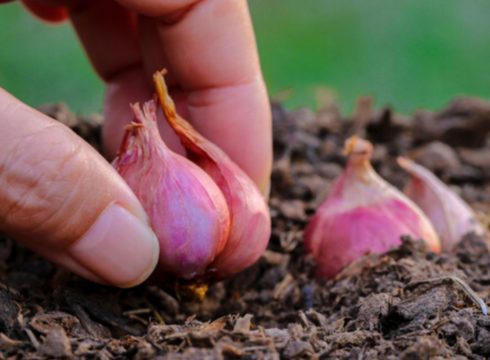SUMMARY
Farmers have suffered from onion crop damage due to inconsistent monsoon
Heavy infestation of crop diseases damaged crop by up to 60%
Raised-bed plantation along with drip irrigation was the solution to limiting damage
Inc42 Daily Brief
Stay Ahead With Daily News & Analysis on India’s Tech & Startup Economy
While most parts of the country are witnessing sky-rocketed prices of onion due to crop damage — selling around INR 100 in many areas, farmers in Maharashtra have leveraged technology in farming practices to limit onion crop damage, according to a recent survey accessed by Inc42.
Conducted by Pune-based Indian Council of Agricultural Research (ICAR) and the Directorate Of Onion and Garlic Research (DOGR), the survey highlighted that farmers in major onion-growing areas of Pune, Ahmednagar and Nashik lose a huge part of their crop due to heavy rains during the Kharif harvest, as well as in the Rabi nursery or early planting.
Agritech Increasing Onion Production
Agritech is already playing a substantial role in increasing the yield of major crops in many parts of the country. Even in the case of onion farmers of Maharashtra, improvised farming practices have reportedly brought a positive change in the crop production.
The survey highlighted that farmers who employed better technology in farming incurred much less damage as compared to earlier crop production.
DOGR, in its survey, further added that in some areas, a heavy infestation of crop diseases damaged late Kharif crop by up to 60%. Additionally, rabi onion nurseries suffered up to 50% damage, with heavy rainfall drastically shrinking the planting area.
Moreover, farmers in Purandar, Pune, who followed the ICAR-DOGR recommendation of raised-bed plantation along with drip irrigation in onion crop suffered only 20% to 30% damage, despite erratic rains in the region.
Further, in the survey, DOGR observed that the main cause for loss of Kharif onion yield was poor drainage in fields exposing plants to prolonged periods of waterlogged stress. “Under a climate-change scenario, similar unprecedented rainfall events might recur, so we need to create awareness among farmers about the Kharif onion production with raised-bed planting, as recommended by ICAR-DOGR,” the survey quoted.
Of course, drip irrigation is just one way to improve the usage of water on a farm. Many other startups have blended weather data-based insights with hardware such as Internet of Things (IoT) devices to give farmers better insights into how much to plant and when. However, many of these solutions are crop-specific, and may not apply to onion farming.
For example, Fasal, which earned funding from Omnivore and other investors recently, targets high-value horticulture crops such as grapes and is looking to expand in this direction. Similarly, seed-to-fork agritech startup Aibono targets highly perishable and short-cycle crops such as carrots, broccoli, lettuce and others. In time, there will be solutions that are geared for onion, which is considered the most staple of all vegetable crops in India.
Note: We at Inc42 take our ethics very seriously. More information about it can be found here.


